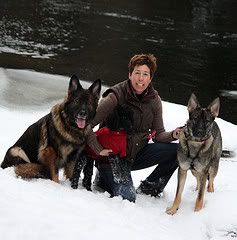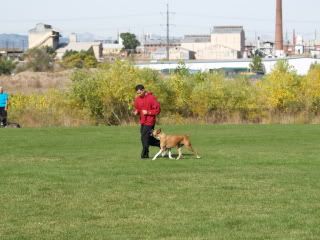Hurray!
>
> CANINE RABIES CHALLENGE STUDIES BEGIN !
>
> The Rabies Challenge Fund is pleased to announce that the canine rabies
> challenge studies have begun!!! Permission is granted to post and cross-post
> the text of our press release below.
>
> Regards, Kris L. Christine
> Founder, Co-Trustee
> The Rabies Challenge Fund
>
http://www.RabiesChallengeFund.org <http://www.RabiesChallengeFund.org/>
>
>
>
> One of the most important vaccine research studies in veterinary medicine is
> underway at the University of Wisconsin School of Veterinary Medicine in
> Madison. Dr. Ronald Schultz, a leading authority on veterinary vaccines and
> Chair of the Department of Pathobiological Sciences, has begun concurrent 5
> and 7 year challenge studies to determine the long-term duration of immunity
> of the canine rabies vaccine, with the goal of extending the state-mandated
> interval for boosters. These will be the first long-term challenge studies
> on the canine rabies vaccine to be published in the United States. Dr.
> Schultz comments that: "We are all very excited to start this study that
> will hopefully demonstrate that rabies vaccines can provide a minimum of 7
> years of immunity."
>
> This research is being financed by The Rabies Challenge Fund, a charitable
> trust founded by pet vaccine disclosure advocate Kris L. Christine of Maine,
> who serves as Co-Trustee with world-renowned veterinary research scientist
> and practicing clinician, Dr. W. Jean Dodds of Hemopet in California. The
> Rabies Challenge Fund recently met its goal of $177,000 to fund the studies’
> first year budget with contributions from dog owners, canine groups,
> trainers, veterinarians, and small businesses. Annual budget goals of $150
> 000 for the studies must be met in the future.
>
> Dr. Jean Dodds, DVM states: "This is the first time in my 43 years of
> involvement in veterinary issues that what started as a grass-roots effort
> to change an outmoded regulation affecting animals will be addressed
> scientifically by an acknowledged expert to benefit all canines in the
> future."
>
> Scientific data published in 1992 by Michel Aubert and his research team
> demonstrated that dogs were immune to a rabies challenge 5 years after
> vaccination, while Dr. Schultz’s serological studies documented antibody
> titer counts at levels known to confer immunity to rabies 7 years
> post-vaccination. This data strongly suggests that state laws requiring
> annual or triennial rabies boosters for dogs are redundant. Because the
> rabies vaccine is the most potent of the veterinary vaccines and associated
> with significant adverse reactions, it should not be given more often than
> is necessary to maintain immunity. Adverse reactions such autoimmune
> diseases affecting the thyroid, joints, blood, eyes, skin, kidney, liver,
> bowel and central nervous system; anaphylactic shock; aggression; seizures;
> epilepsy; and fibrosarcomas at injection sites are linked to rabies
> vaccinations.
>
> Study co-trustee Kris Christine adds: “Because the USDA does not require
> vaccine manufacturers to provide long-term duration of immunity studies
> documenting maximum effectiveness when licensing their products, concerned
> dog owners have contributed the money to fund this research themselves. We
> want to ensure that rabies immunization laws are based upon independent,
> long-term scientific data.”
>
 Previous Topic
Previous Topic Index
Index Next Topic
Next Topic













 Top
Top








